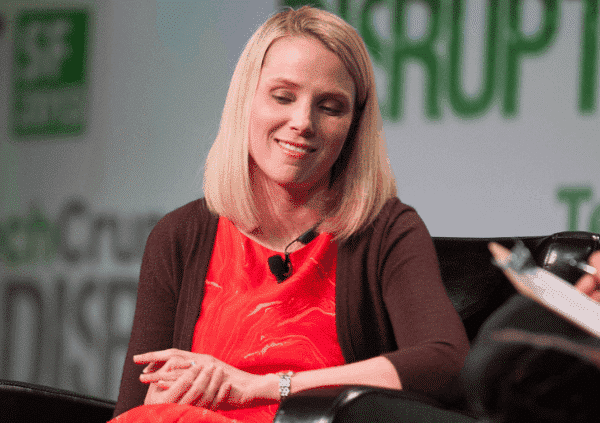Here’s what’s really behind that open letter to Obama from tech’s giants

The word “Snowden” has become a short-hand signifier for a story that has implications for anyone doing business in the tech sector in 2013. While the story has international dimensions, the goat receiving the bulk of public hostility has been the United States’ NSA.
No one’s information is safe, it’s alleged, least of all if you’re a registered user of a social network. Facebook, Google, and Twitter all issued declarations of outrage (with a notable silence from Microsoft), after initial reports suggested that they had collaborated in espionage. On Monday, Facebook, Google, Twitter, Yahoo!, Microsoft, Apple, LinkedIn and AOL published an open letter addressed to President Barack Obama.
“The balance in many countries has tipped too far in favor of the state and away from the rights of the individual — rights that are enshrined in our Constitution,” the letter said. “This undermines the freedoms we all cherish. It’s time for a change.”
Nobody writes an open letter to solve a problem that could be better handled through a private communication. An open letter is a PR exercise entirely focused on the needs of the letter’s author.
On the President’s side, the tech giants’ open letter represents an opening salvo in one of the long-threatened adult conversations the nation never quite gets around to actually having. Speaking as a grown-up, he asserts that “You can’t have 100% security and 100% freedom.” The open letter allows the government to assure the public that it’s taking these matters very seriously in doing the hard work of preventing the next terrorist attack by making you take your shoes off at the airport while positioning the tech companies both as victims of government overreach and stewards of the public good.
The letter is both an attempt to jockey for position in preserving the status quo and to limit the loss of $180 billion in revenue predicted by analysts to flee from the IT economy by 2016 as a direct result of public anxiety about privacy. The words of Yahoo CEO Marissa Mayer are perhaps most telling. “Protecting the privacy of our users is incredibly important to Yahoo,” she is quoted as saying in the document. “Recent revelations about government surveillance activities have shaken the trust of our users, and it is time for the United States government to act to restore the confidence of citizens around the world.” The tone bears a sharp contrast to Mayer’s September claim that it would be “treason” for Yahoo to disobey the NSA.
Nobody writes an open letter to solve a problem that could be better handled through a private communication. An open letter is a PR exercise entirely focused on the needs of the letter’s author. It’s an attempt to control optics emanating from the source. It’s spin. The companies need to distance themselves from accusations that they’re direct collaborators in espionage. And people require a justification to continue using services they now totally depend upon.
It remains unlikely that people will abandon Google or Facebook en masse, since knowing that your phone is basically a tracking device is tempered by the fact that you both need and want its convenience. The remedy for this, according to the Electronic Freedom Foundation, is to either leave your phone at home or remove its battery.
Chris Soghoian, senior analyst with the American Civil Liberties Union: “It sure would have been nice if the tech companies had been loudly supporting intelligence reform before Snowden’s disclosures.”
Meanwhile, the second-largest mobile network in the United States, AT&T, has just formally requested that it be allowed to side-step a shareholder demand to open its customer information sharing with government agencies policy to public scrutiny. Amazon, notably, is also missing from the list of signatories.
Whatever his motives, Snowden’s actions have opened a debate that ought to have been happening during the past decade during which millions of people clicked agree on their EULAs without reading them. As Chris Soghoian, a senior analyst with the American Civil Liberties Union, points out, “It sure would have been nice if the tech companies had been loudly supporting intelligence reform before Snowden’s disclosures.”
Tech writer Jeff Jarvis has been pushing for an Internet “bill of rights” for the past couple years. It’s an admirable effort, but suggesting that it’s up to companies to take an oath to regulate themselves rather lets the everyone off the hook while again treating the user (aka. people) as children. It also seems a recipe for stasis by disagreement, with initiatives that seem self-evidently good, such as “protecting children” while they surf the internet, slipping into badly disguised attempts by the government to control online life.
Ideally, after this open letter thing has blown over, the public will still have an appetite for demanding greater oversight of CSEC here in Canada. And neither the NSA nor CSEC, not to mention the GCHQ and Europe’s espionage agencies, are likely to accept any kind of diminishment as long as China’s ethics-free approach to information gathering goes on largely unaffected by any kind of public scrutiny. The open letter specifically cites the United States’ Constitution, while calling out the actions of “the world’s governments”, which sets everyone up for a tricky campaign in which the nations of the world resist interference in their “internal affairs”. You can already see the Grinch-like smile spreading across Vladimir Putin’s face, just before the raid on Whoville.
Sunlight is the best disinfectant, and openness and transparency ought to provide a better framework for discussing these difficult issues than treating people like children who need protection from Big Brother. Writing an open letter is theatre. Hopefully, it will be followed by some actual conversation.
__________

Terry Dawes
Writer
